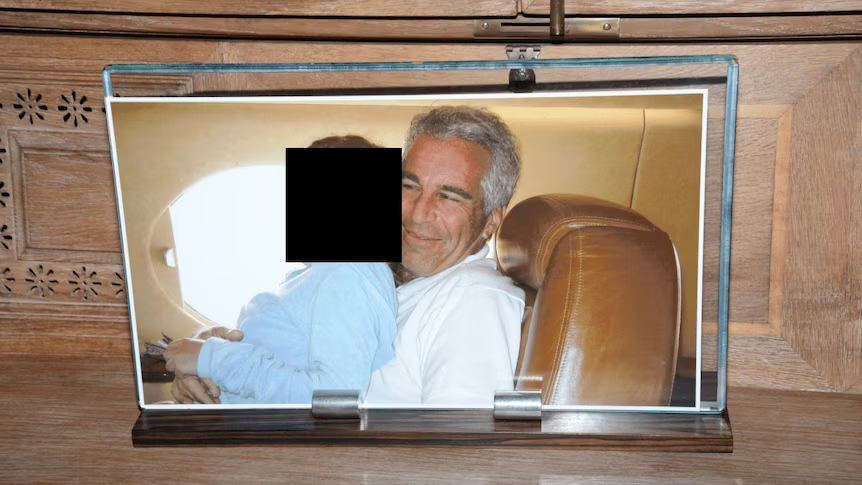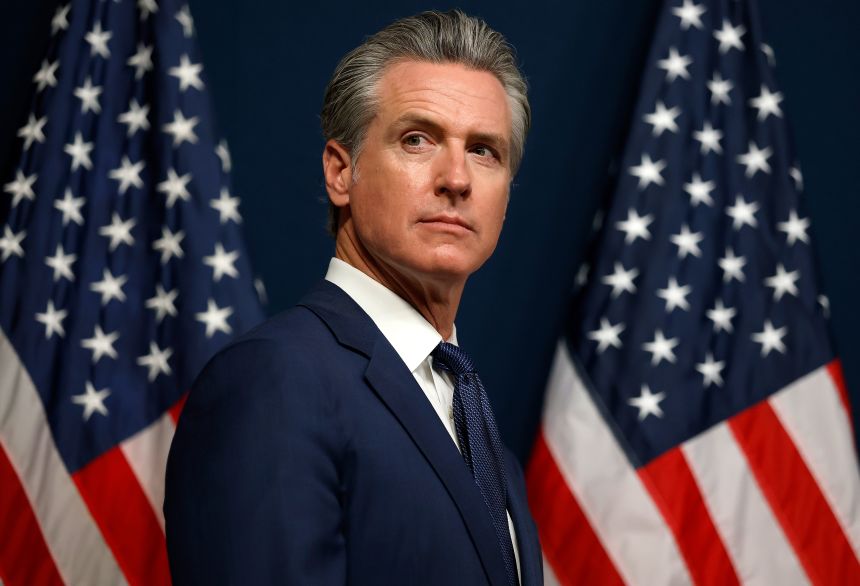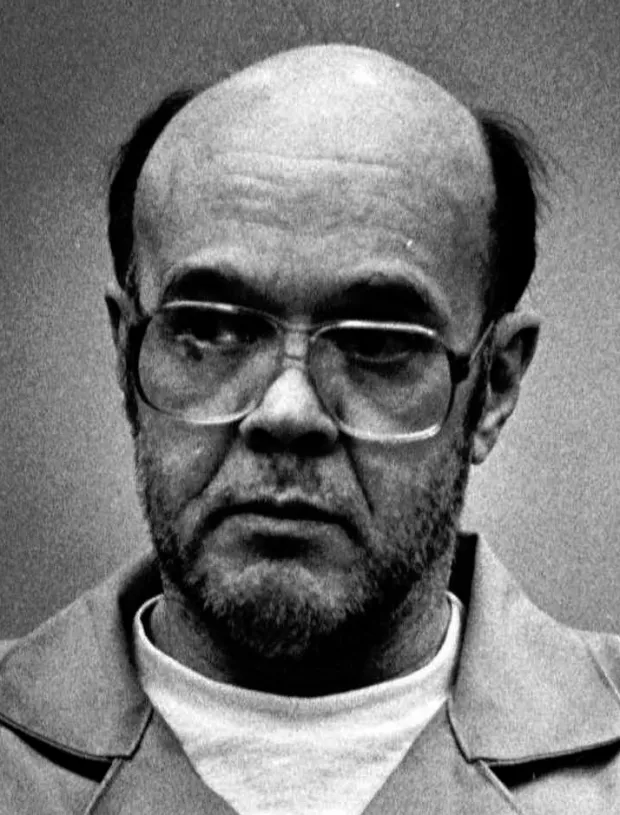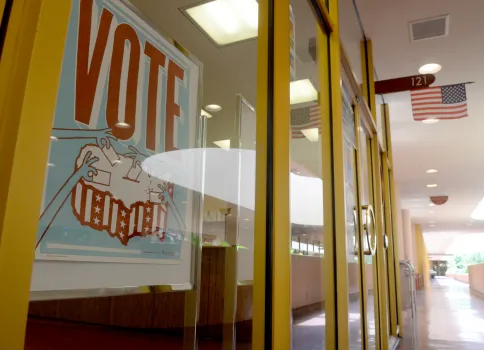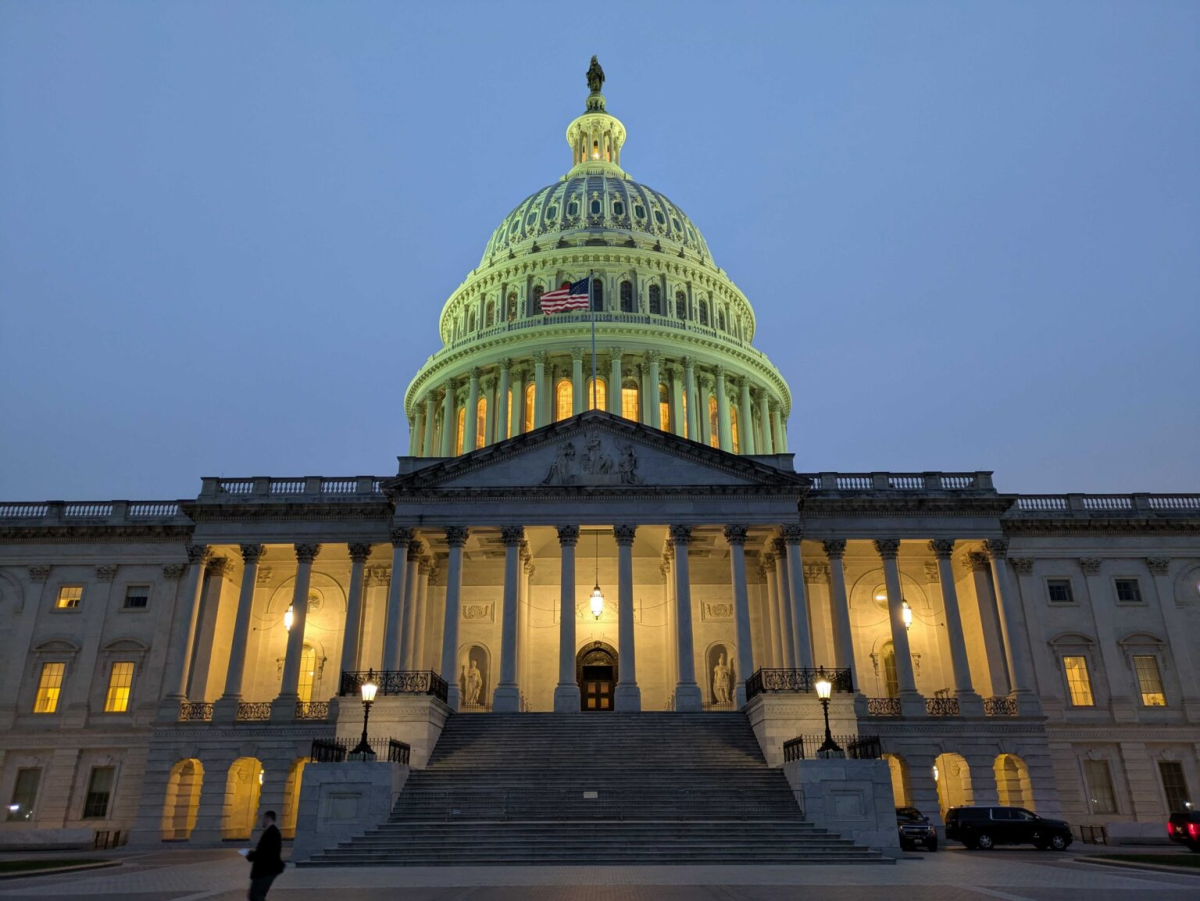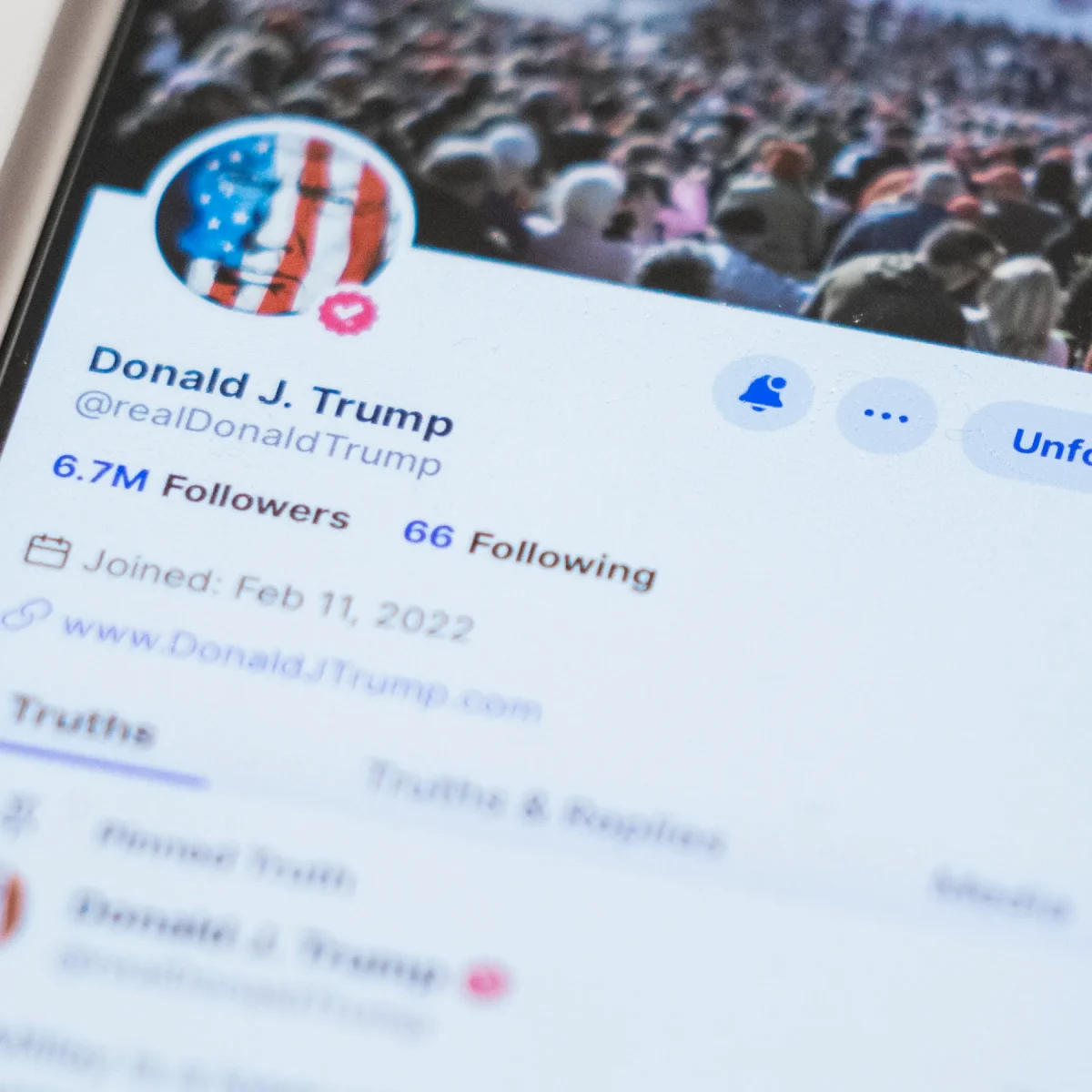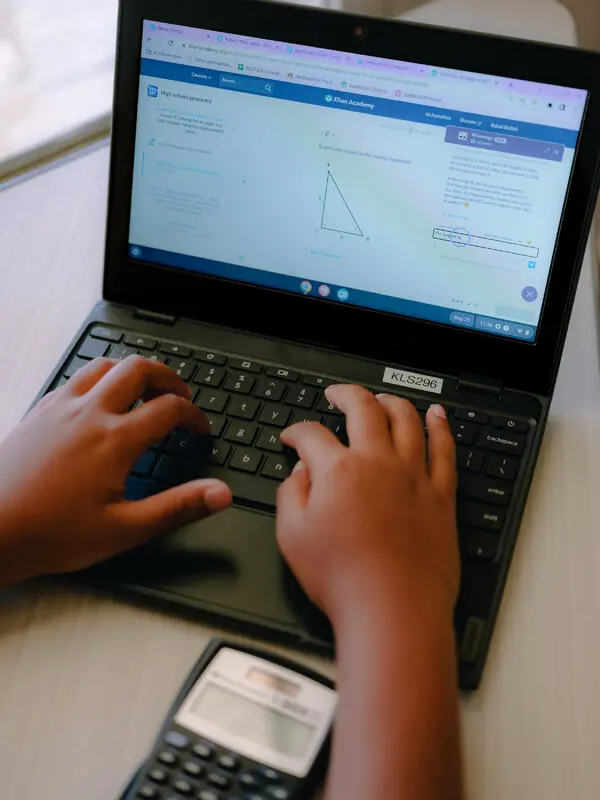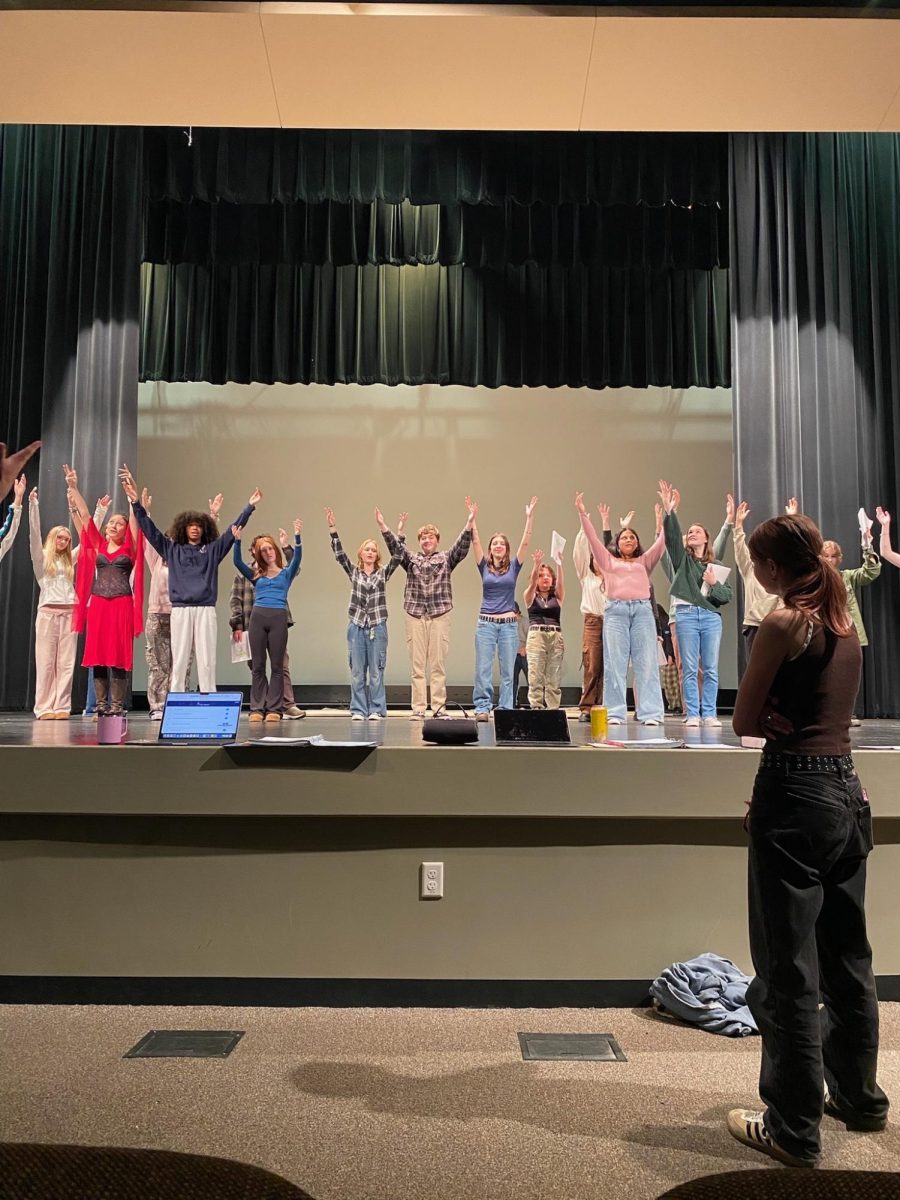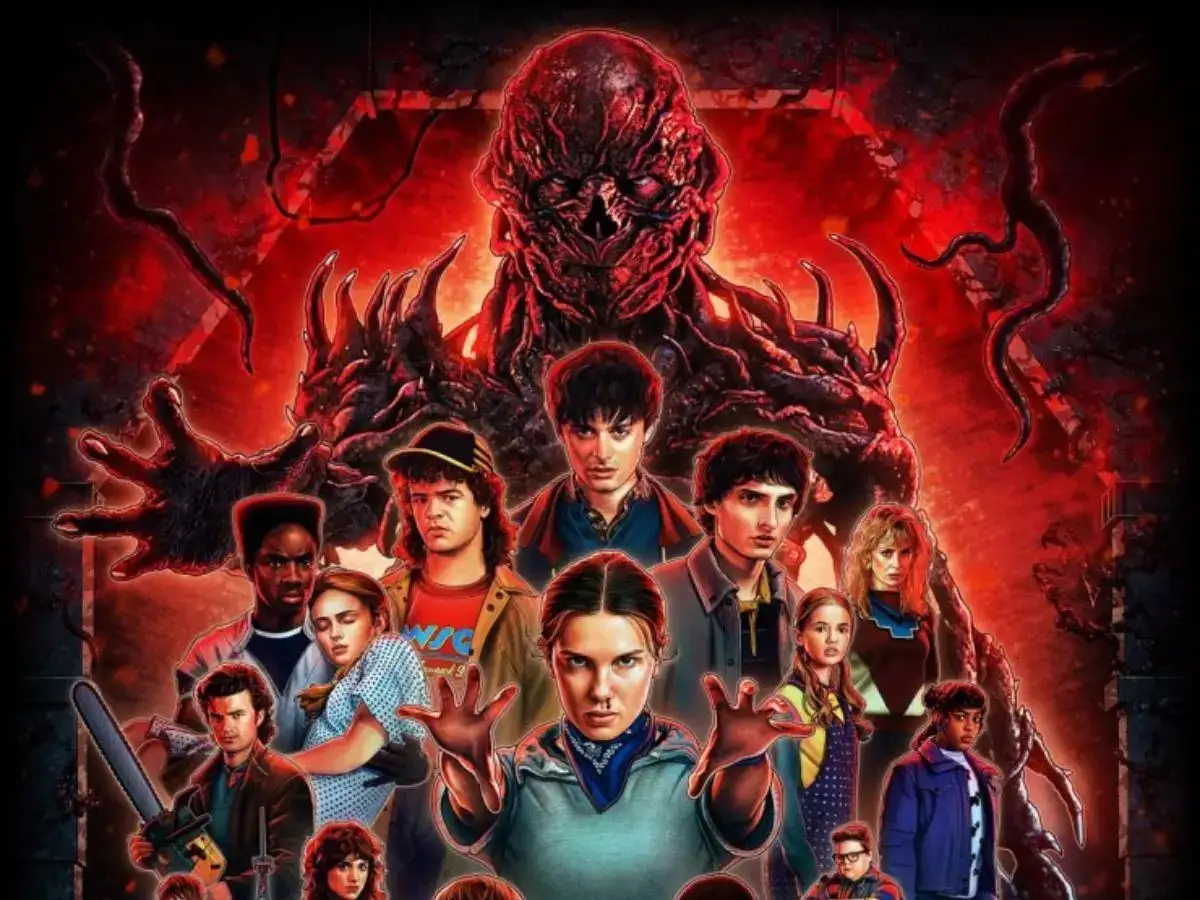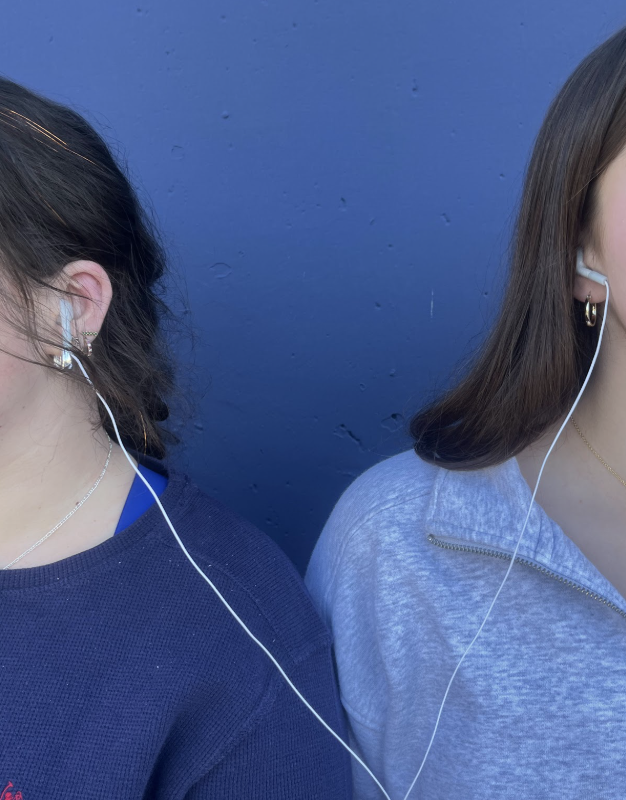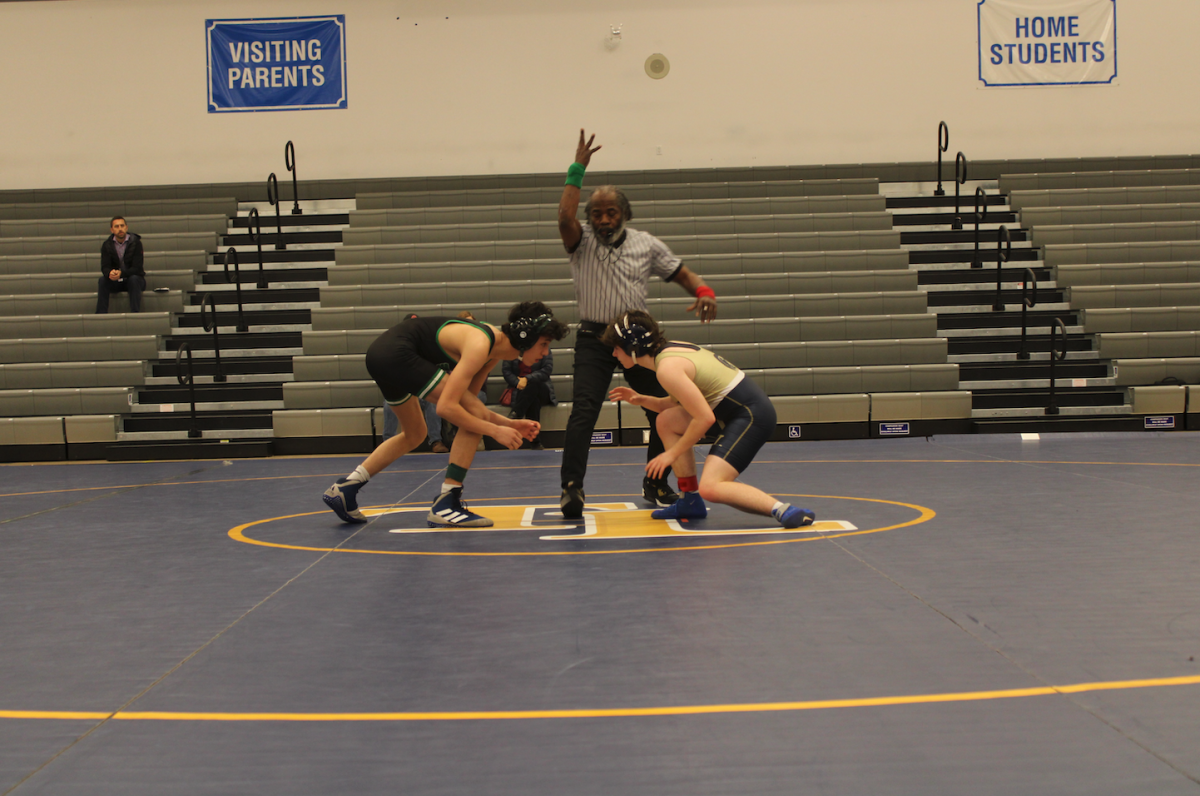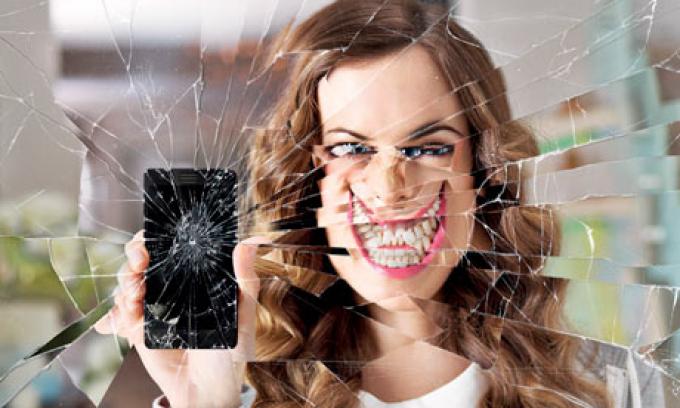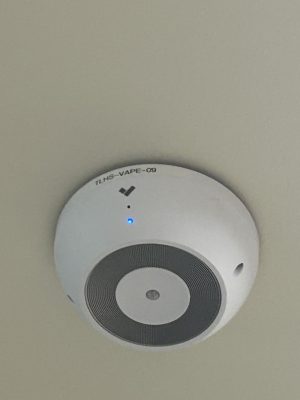Black Mirror Review
March 1, 2017
Looking for a new show, packed with action, romance, adventure, and psychological horror, that questions everything you know about technology? Then Black Mirror might be a show for you. Now expecting a fourth season in 2017, Black Mirror is a British TV show becoming increasingly popular in the U.S. Each episode featuring it’s own unique cast and plot, Black Mirror is a suspenseful, satirical drama about the impact of technology on our lives, what it could lead to in the future, and how far human error is willing to go. We all know the facts: by 2020, 70% of the world’s population will own a smartphone. But this show provides an emotional and psychological layer to our understanding of this new tech epidemic by showing how it affects humanity. Episodes range from present day to far in the future, showing off several peculiar plots. For example, “15 Million Merits” includes a universe in which the inhabitants are transfixed to their screens, constantly taking everything shown, humiliation, deceit, and raw humanity, as just another form of entertainment. Yet another episode, “White Bear,” critiques our justice system and explores the emotional distance that has grown between us due to the distraction of viral videos which humiliate people. Here, a few prominent episodes are explored, to give a glimpse of the popular new television show to the few who have not watched it yet.
On the surface, the season one pilot of Black Mirror, titled “15 Million Merits” is about a man, Bing, who has no purpose in life. He, along with most of the population, ride stationary bikes while watching TV in a trance-like state, supposedly to power the entire compound that the people live in. People are only allowed to focus on their screens, which provide constant entertainment and distraction. Nobody has a real connection with anyone or anything else. When Bing meets and then falls for Abi, who has singing talent, he offers to pay almost his entire fortune for her to be entered into an X-Factor style talent competition so that she can become a famous singer and have a better life. The dramatic twists and turns – how innocence can be so easily compromised, how those who benefit from the system don’t question it, and how everything, even dignity, has a price – shock and confuse many, if only because of how much it can metaphorically parallel real life. How much are people really willing to watch as entertainment? Why are people on TV dehumanized to the point where hurting them is considered comedy? Why do people at the bottom of the socioeconomic pyramid complain about the system until they’re at the top? How does media corrupt people’s empathy? This episode may make you doubt everything you’ve ever known about our current socioeconomic system. Leaving so many unanswered questions, the one that may sit in the back of your mind is: Am I part of the problem?
“The Waldo Moment” is an episode so satirical and ridiculous that many deemed it unrealistic – until real life mirrored it. In this season two episode, Jamie, a failed comedian, voices and controls a cartoon named Waldo on a late night show, mocking people and making crude and inappropriate jokes. Due to Waldo’s popularity among English citizens, Jamie’s boss jokingly suggests that Waldo run in the upcoming local election. To increase the popularity of the cartoon, he indeed does run in the election, participating in debates where he humiliates his political opponents, making rude and vulgar comments towards them. Before you know it, Waldo is a massive political figure and controls many people. If Waldo tells a crowd to riot, they’ll do it, as many people believed in his message of “Politicians suck, so trust Waldo: he’s not a politician!” This episode, aired two years before Donald J. Trump announced his plan to run for presidency, received much criticism due to how unrealistic it was. People asked, “Who would vote for this dumb cartoon instead of someone with real political experience?” Unfortunately, the recent presidential election answered that question for us all. The message struck a chord with many after the Donald Trump campaign demonstrated how the more nonsensical, inexperienced, problematically relatable a person is, the more people trust them and look up to them. The message was shocking and amazing, but the episode might not have been the most entertaining. It focused too much on the consequences on the comedian’s life and may have been too boring for many people to enjoy. But it still accomplished its task of making people question the world around them.
“Nosedive”, the pilot of season three, is an episode that hits a little too close to home for some people. The setting of the story is a world where everyone is always on their phones – and rates every person they interact with from one to five stars. A person’s average number of stars is their status, and privileges, such as homes, jobs, and other material goods, are given based on their average. This episode directly correlates to this generation’s addiction to social media. It also taps into the basic human impulse to crave approval from others. This episode gets inspiration from a real-life app, “Peeple”, that was designed so that people could rate others out of five stars based on their experiences with them, with most people striving to achieve a 4.0 or higher average. Furthermore, those with the highest averages receive special privileges such as express lines and high quality service, perhaps alluding to the secret privileges that the rich receive within our society today. This app received so much criticism that when it was released, the services became less judgemental, critiques of a person only showing up if they’re approved by that person. This is the kind of episode that makes you question everything. Given how addicted we are to apps such as Instagram, Facebook, and Snapchat, it’s not a far leap to look at the stars as likes on a picture or your Snapchat score. And right now, considering social media stars, it’s not hard to see popularity as a way to get things for yourself. And finally, another parallel: how everyone puts on a show for everyone else. On social media, and through the rated human interactions of “Nosedive,” no one expresses their true self for fear of being judged or being rated badly. Not only is this episode relatable for skeptical social media users, it turns into more and more of a horror story as the main character slowly loses her high star average, and in turn, her sanity.
The season 2 episode “White Bear” is another example of a Twilight Zone-esque story. A woman wakes up in a house, with no memory except of a young girl she believes to be her daughter, and wanders around an empty suburban neighborhood to find out out every person she sees won’t talk to her, but will only film her from afar with their mobile phones. You are invested from the story from the start. Where did this woman come from? Why will no one help her? And why are they filming everything? Combined with riveting storytelling, the ending of this episode leaves a lot to be questioned – about society and about ourselves. It explores the digital age and a generation obsessed with living life through a screen. It connects crime and punishment and the humanity of criminals in a heart-wrenching way. It proves how everlasting the Internet can be, no matter what is posted. And most importantly, it shows the emotional distance technology has caused to have between ourselves and real life. While this episode has received criticism for its numerous metaphors and confusing plot, it is still the typical Black Mirror episode; smart and enjoyable. Overall, the puzzling story and the unexpected ending just proves that Black Mirror has secured its place as one of the most intelligent, explosive, and gripping shows of the decade.
Did these storylines grab you? Did they make you question your surroundings? Did you have a realization about technology in our world today? And most importantly, do you think you would enjoy watching the show? To many people, the answer to these questions is yes. Black Mirror is smart, riveting, and entertaining. It constantly surprises it’s audiences with every episode. How much more could you ask for from one show? And while some episodes might not be for you, not to worry – considering each episode features its own unique characters and setting, there’s a variety of themes and genres just waiting to be enjoyed. Still not for you? Just remember that you’re probably staring at your own “black mirror” right now. It might do you some good to take an in-depth look at what’s taking over our world right now, for better or for worse: technology.



